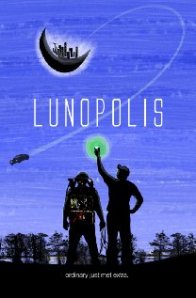Archive
Two Great Free Resources for Novel Writers–Holly Lisle and BasKet Note Pads
As I begin my probably fourth foray into attempting to write a novel, and this being the time that I swear I’ma finish this fucken thing or I’ll never try again chop off my face, I have two really great free resources I’d like to share with anyone thinking about writing a book. One is an author named Holly Lisle, who publishes a shit-ton of excellent writing advice, and the other is a piece of note-organizing software. Actually, I’m recommending two pieces: one for Windows users, and one for Linux users like myself.
Writing fiction is a fire that burns inside of you, and burns you from the inside out. It sears away the lies you tell yourself, it sears away the masks you hide behind, and in the end it refines you the way fire refines gold. What you put into your writing you get back a hundred-fold. Your characters teach you how to live, how to love, sometimes how to say goodbye. –Holly Lisle
Aside from having an established career as a writer, Holly Lisle is awesome because she is a real human being. This is unusual because the majority of lesser-known writers offering workshops seem to fall into two categories: charlatan and ego-maniacal hack. Holly manages to escape these labels by endorsing one trait, one value, one passion above all: honesty. She’s as real as it gets when she writes about writing. I don’t always agree with her, and that’s natural–find me two writers who agree on everything and I’ll eat my left shoe. No I won’t, and you’re gross for suggesting that.
Holly offers everything from humble advice to free writing courses on her website. She also sells writing courses and other stuff, but that doesn’t mean she just offers half-assed shit in an effort to get you to buy something. She offers complete and sound advice, and though her word may not be the be-all, end-all of writing tips and experience, she has a hell of a way of inspiring people and bringing a fresh clarity and perspective to writing advice. I enjoy reading her advice and her interesting viewpoint for its humor and down-to-earth, but skillful prose. I read her free e-book last year, Mugging the Muse, and I was totally inspired by it.
Now I have to make a confession: I have only read excerpts from her books! I’m not really into most fantasy stuff. So I can only judge her expertise by the good that it has done me and my writing. So far, I rate her advice a solid A. That’s just me. Mosey over to hollylisle.com if you could use some help mugging your muse.
AllMyNotes Organizer for Windows or BasKet Note Pads for Linux.
I’ve posted screenshots of both programs, but pay attention to what I did in the BasKet Note Pads screenshot: the setup of the basket tree on the left gives you a good idea of what these programs can be used for in terms of writing. You can even write your entire novel in these programs.
I’m currently using BasKet Note Pads as the example here because I use Ubuntu, but AllMyNotes Organizer can be used the same way. These programs are excellent for writing organization, even if you are a linear writer–having a way to file and keep track of your characters, plot development and mechanics, settings and themes and all that other shit is invaluable. It takes so much work out of it because you don’t have to fumble to remember why your character David always gets in fights at the bar–just look up the character history to see how he got beat by his alcoholic stepmother when he was growing up. Or when you’re trying to remember any of the other thousands of choices, turns and histories in your novel, the information is a click away!
I don’t know if AllMyNotes has this feature (I haven’t used it since December 2010), but in BasKet you can drag and drop any link, text file or image file into a basket. This means that I just open BasKet and everything is right there–the text files of the manuscript, pictures I keep for inspiration, links to useful writing sites, and all the notes I need to organize the novel. Both programs are password protectable, save constantly, create backup files automatically, can create exportable/importable HTML or .txt files, and are encrypted with the options of a public or private encryption key.
These type of programs make writing a story way fucken easier. Give em a shot. They’re fucken free. (On Ubuntu, BasKet is available in the Software Center. Easy peazy.)
Two Fantastic Independent Science Fiction Films You Might Have Missed, But Must See
Fans of speculative fiction may appreciate the following two films. Both have their flaws; as I see it, the strengths of these films far outweigh their shortcomings. To me, that is the constant compromise sci-fi fans must endure in order to get our fix. Here I’ll review two films which will get you that fix: Altered (2006) and Lunopolis (2009).
The experienced science fiction film fan likely understands that the road from idea to presentation for science fiction writers is a tough one. As a writer, I personally come from a perspective that is more sympathetic to the intent of the story’s author than the desire of the film industry to turn a profit. We’ve all seen many potentially awesome stories turn to a heap of shite when the story finishes the gauntlet of production; and few can survive the Hollywood humping and remain soulful and competent in the sum.
That’s why independent, lower-to-lowest budget film offers something that Hollywood simply can’t: stories which stay heartfelt and true to the intent of the writer. The following are two spoiler-free recommendations I believe fit the bill, although I can only speculate as to whether the writers would agree with my critiques.
Altered (2006)

Intro: Altered is a story that stays between just a few characters; it fits on a small scale, but manages to be a story about events which could end the world. The following is the blurb offered up by imdb.com:
Fifteen years ago, a group of men’s lives were forever changed by a strange occurrence. Now, the same group of men will spend a night together … in terror.
Because I’m a firm believer in taking the least amount of information, and the accompanying preconceived notions, necessary to motivate me to see a film–and therefore experiencing a story unfolding the way the storyteller intended it, unraveling one scene at a time–I won’t offer any more information about the plot, with one exception: the film involves alien visitors. Now my review will make a little more sense.
The Strengths: I’m a firm believer in the appropriate use of the “less is more” trope. Used adequately in a science fiction film, this can produce a feeling of profundity and intrigue, which I believe few platforms other than speculative fiction are capable of giving us in such high doses (2001: A Space Odyssey comes to mind.) The best scene in this entire film is a perfect example of this; the scene is in the last act, and it is very brief, but it kicks you right in the sci-fi heart. It left me craving more, but also knowing it was just enough. If you watch the film, you’ll know what scene I’m talking about. The result is what I look for in speculative fiction: I couldn’t stop thinking about that scene, replaying it over and over in my mind. This scene put the movie over the top, from a really good film into what I consider a must-see.
Aside from the payoff at the end, this movie has other characteristics that are fundamental to a good film. The writing keeps you hooked. The editing doesn’t blow. The acting is solid and the parts are well-cast. The production values are what you’d expect in independent science fiction, competent at least and in some aspects better than competent. (See The Weaknesses for the main exception to this.) The directing is done by the story writer, which is always a good sign that it will stay true to the writers’ intentions. It turns out pretty solid. Overall, the cinematography is competent and even exceedingly well done. The gore is in just the right places, which fit the story. The film stays away from cheap scare tactics. It doesn’t insult the viewer. The end result is a great film done on $8 million.
The Weaknesses: A couple of things to note here. Remember that awesome scene I told you about toward the end? It involves some CGI on natural backgrounds. The CGI isn’t bad, but it could have been better in terms of lighting and fitting in with the background. My complaint is minor, because to me what mattered was what the scene conveyed. So if you’re forgiving as I am, it won’t bug you too much.
The only other weaknesses I see with the movie, upon first viewing, are minor manifestations of problems typical to film: a few slight weaknesses in the writing, a couple of acting or possibly directing shortcomings, some editing that could have been done better. Overall, the takeaway beats these qualms.
Last Words: If you love science fiction and can forgive a film for its budget restrictions, then go over to Netflix Watch Instantly or do what you gotta do to see Altered.
Lunopolis (2009)

Intro: I am a confessed fan of the “found footage” or documentary-style, point-of-view film. There is something about these films that I find compelling and often terrifying. I think this genre and its many variants have great potential, and when done appropriately a film in this style can be good (Cloverfield, The Tunnel, the obligatory Blair Witch mention). When done badly, the results can also be terrible. Luckily, Lunopolis falls into the former category. Here’s the plot summary according to imdb.com:
Two documentary filmmakers accidentally uncover the greatest moon secret the world has never known, and the powerful organization determined to keep it that way.
Per usual, the blurb doesn’t tell you much about the breadth and depth of the plot, and as you know, I think that’s a good thing. This film depends on the viewer experiencing the mystery unraveling with each scene, leading to a couple of moments which made my heart pound so fucken hard I thought I’d need a paper bag. Few movies ever have me rubbing my head and saying, “What…the…fuck! Wow!” Lunopolis has at least two of those moments. That’s pretty cool.
The Strengths: This movie transcends simple point-of-view handheld filming, allowing it to explore new facets of the genre. It features mock news stories and interviews, some of which feel convincing, others less so. I’ll talk more about that later in The Weaknesses.
The writers are able to take us from intrigued to claustrophobic, to anxious and then to awed, with some really cool plot points and characters which feel authentic. The beginning of the film features a call-in to a radio show; the script here is probably (has to be) pulled from an actual call made in to Art Bell Coast-to-Coast which I listened to live when I was 16 years old. That got my full attention, on a personal level (don’t worry, I’m over that show now.) I suspect that this call, which was also sampled at the end of Tool’s album Lateralus, was a point of inspiration for this film. Lunopolis goes beyond the simple theme of “something on the moon” and inspects many facets of science fiction in a broad sense: I won’t talk about those themes because to do so would spoil some plot turns for you.
As far as production, the overall execution is competent and often exceeds expectation. Most of the visual effects are great, as not too much CGI is needed for the film. What little CGI there is comes out well-done for the film’s budget. I’ve come to accept that CGI will continue to be a curse upon movie quality, but when done as an augmentation–rather than a crutch–it can help bring a movie to life. Lunopolis pulls it off nicely. The best thing here might be the writers’ ability to take familiar ideas and make them into new things, a very complimenting characteristic in science fiction.
The Weaknesses: There are a couple of things that threw me off; they will likely have some people turning their nose up at this film. For one, the second act of the movie turns into mockumentary and interviews, for about ten or fifteen minutes, so be prepared for a temporary but total change in flow and style. That part right there will have some people agitated; I was, too–but I stuck it out, and the rest of the movie made up for it.
The second flaw worth noting is that from the second act onward, the plot and subplots get confusing. As in, I’ll have to watch this movie at least once more to really understand what happens. Or maybe the writers fucked up, I’m not sure (although I doubt it–I think I just couldn’t keep up.) I can forgive here where many will not. It’s up to the audience to decide. I can accept it because it adds to replay value. But don’t let that keep you from watching.
The only other thing is that the Professor at the university is not as good at the “non-acting”, true-to-life acting style of the rest of the cast. Meaning that up until he appears, you can almost believe that this is just a bunch of people experiencing something amazing happening in real life–and then this asshat who doesn’t match the rest of the cast ruins the suspension of disbelief. Luckily, his is a very minor and short-lived scene. Thank goodness. He’s not a bad actor, it’s just that his style didn’t fit.
Last Words: It’s hard for me to put into words exactly what it is that made Lunopolis so special and moving to me. Rather than try, I’ll just say that this film got stuck in my head and wouldn’t let me sleep for a few hours, because it had my gears working overtime. Of the two films I list here, I recommend Lunopolis most highly. Take the trip. It’s on Netflix Watch Instantly, or go out and buy a copy to support the independent film industry. Because fuck Hollywood.
…
Please be sure not to leave any spoilers in your comments or they will be deleted.


